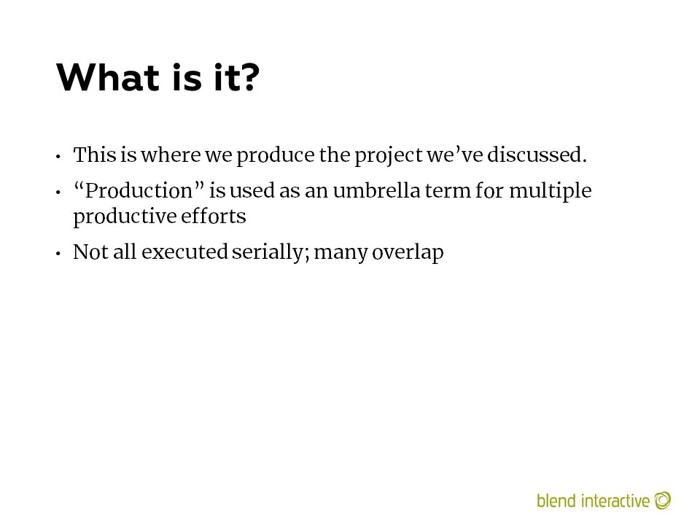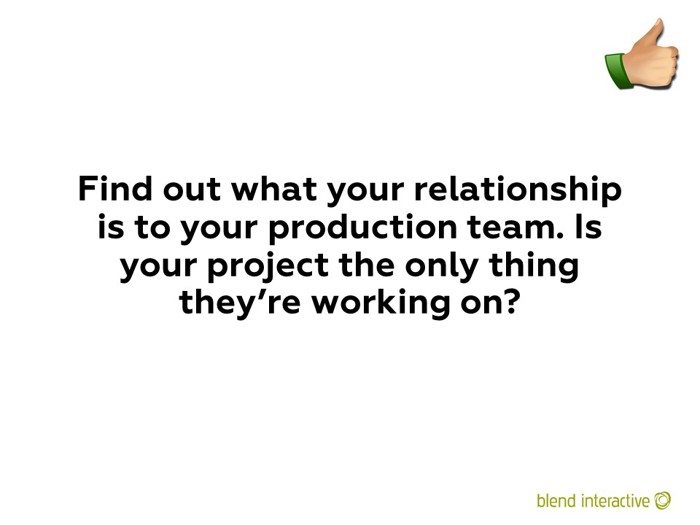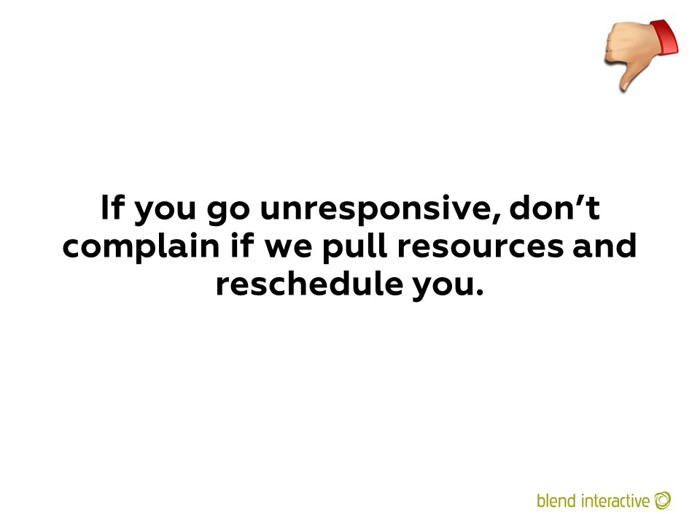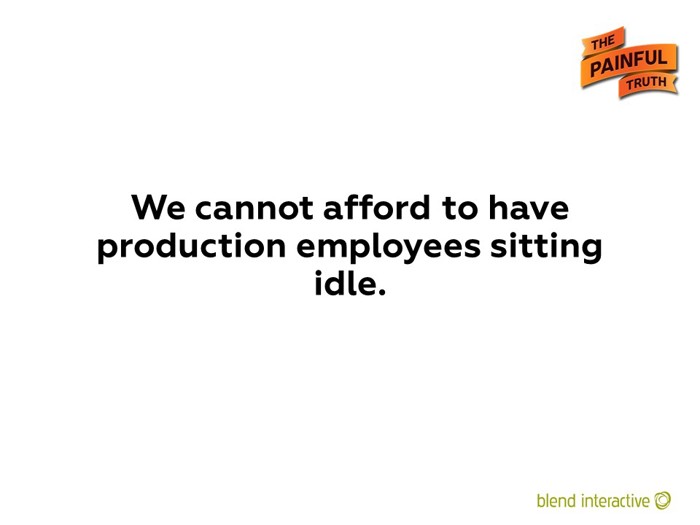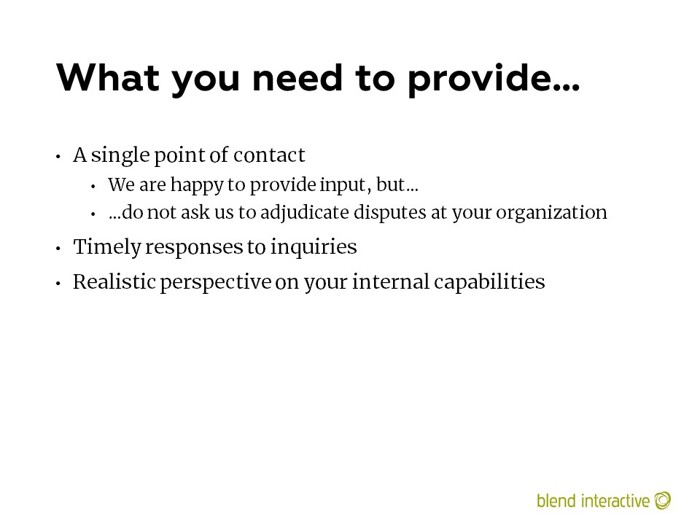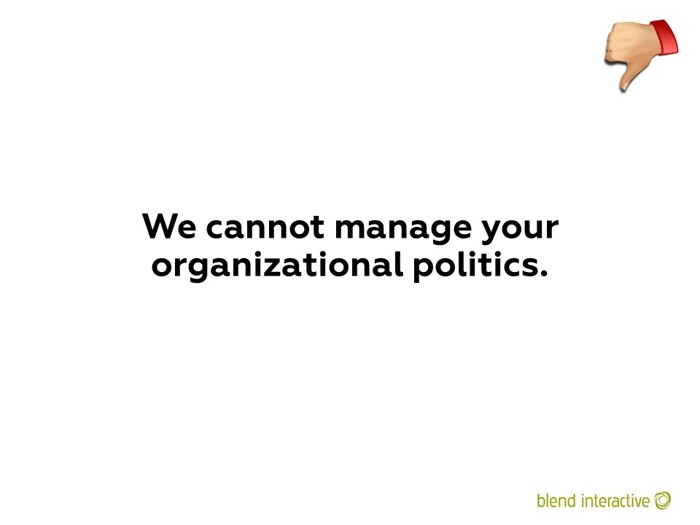CMS Implementations Deck
Section: Production: General (20 slides)
- The images will load as you scroll to them. If you scroll too fast, you might get ahead of the loading.
- The permalink goes to the single page for a slide with “Prev” and “Next” links. It's suitable for bookmarking or sharing.
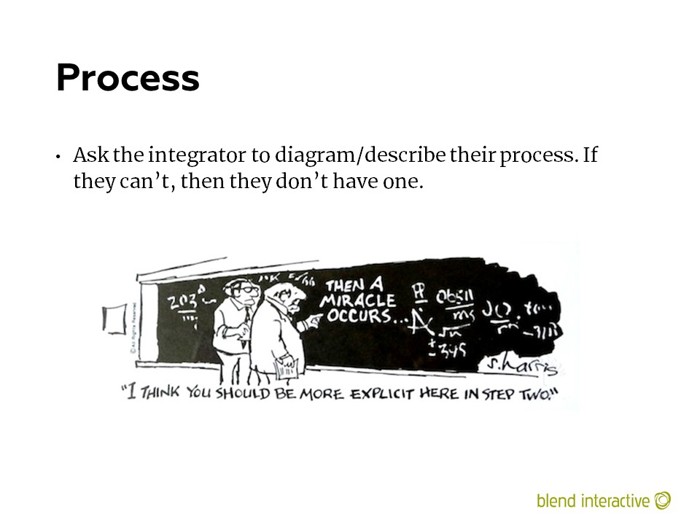
This is still one of my favorite cartoons. It applies to so many things. I’ve been using it for years, but I have no memory of where it came from.
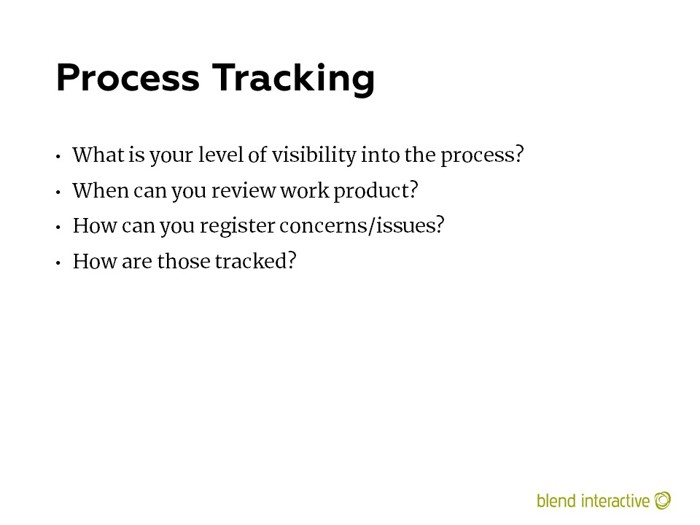
Projects are about communication.
My partner Joe and I attended the very first “Building of Basecamp” workshop in Chicago in 2003. It was by the guys from (then-named) 37 Signals about how they built Basecamp. I remember them saying that they built the tool just to keep everyone talking and lower the bar of effort for people to communicate. Better projects just flowed naturally from that.
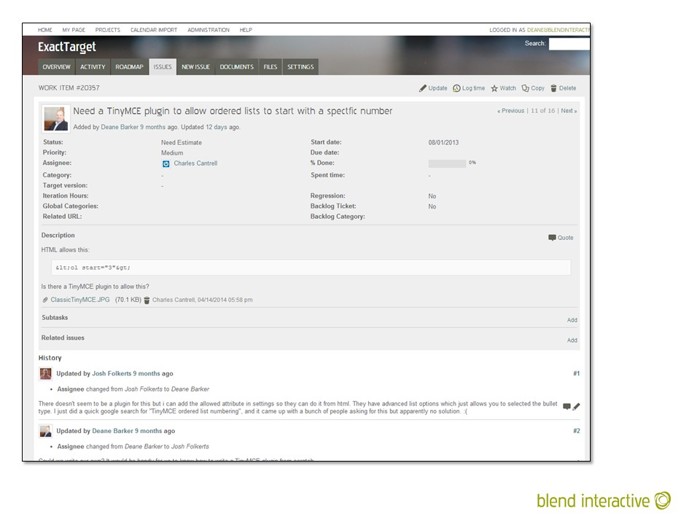
This is an screenshot of Redmine – the ticket-tracking system still in use today at Blend. This is a single ticket and all the information available on it. Each ticket was assigned to a single person and had a blog post-style list of updates that showed its complete history.
If you could implement one single thing to keep a development process on track, it would be some comprehensive, universally used ticket management system. Blend’s entire process revolves around Redmine. They have it so dialed in to everything they do.
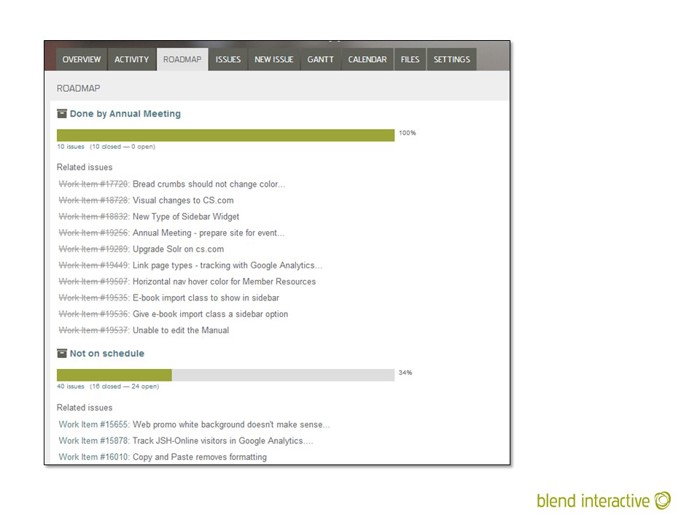
An example of tickets grouped into releases, with the accompanying status.
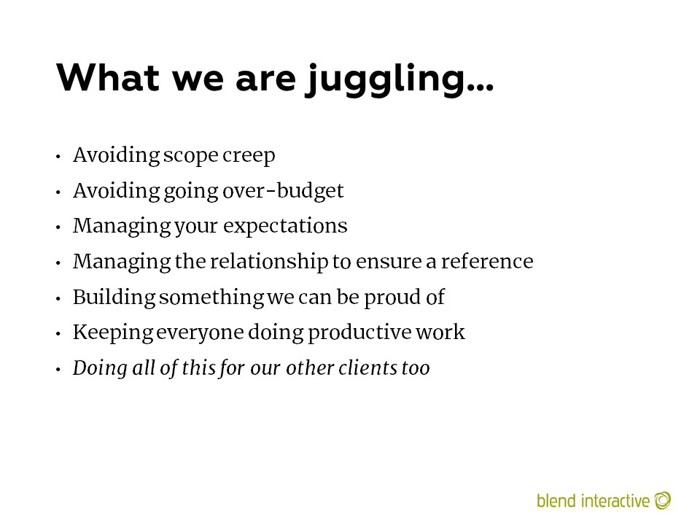
“We” meaning the integrator.
One of the hardest things at Blend over the years was resource scheduling – making sure work was assigned so that everyone maintained a level of productivity and that there weren’t holes in our schedule. It can get breathtakingly complex, because no client cares about any other client, they (understandably) just care about their own project.
But Blend had to try and keep everyone happy while still maintaining a profit.
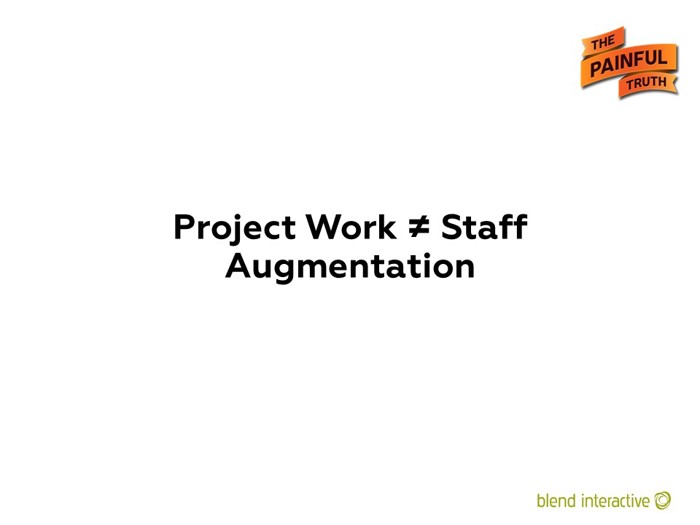
Staff augmentation means someone just sits around and waits for you assign work. You are their boss.
Project works means they have a goal they’re working towards and are likely doing the same for other clients. Their project manager is their boss.
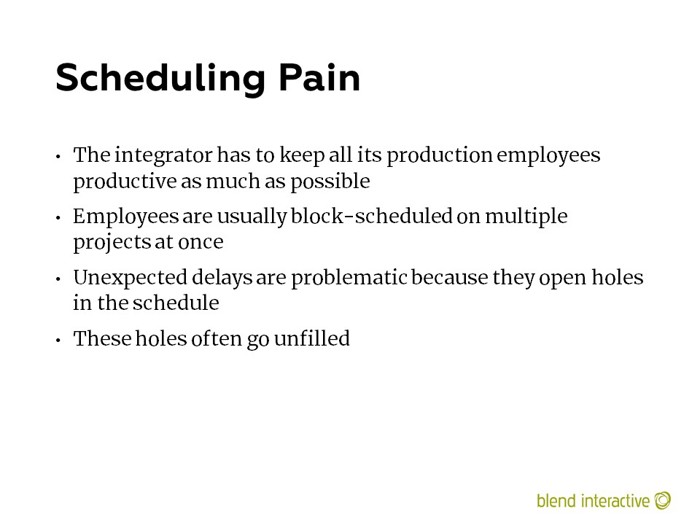
I wrote at length about how integrators schedule and manage work in the context of a Blend project that ran off the rails: The Sometimes Confusing Economics of the Professional Services Business. If you want to understand what your integrator is going though on daily basis, read that post.
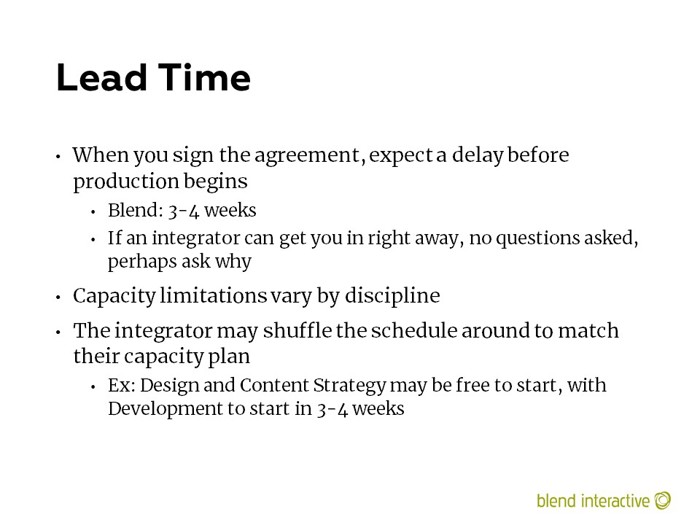
If an integrator has a bunch of staff just sitting around, ready to go on any project at any time, there’s probably a not-so-great reason why.
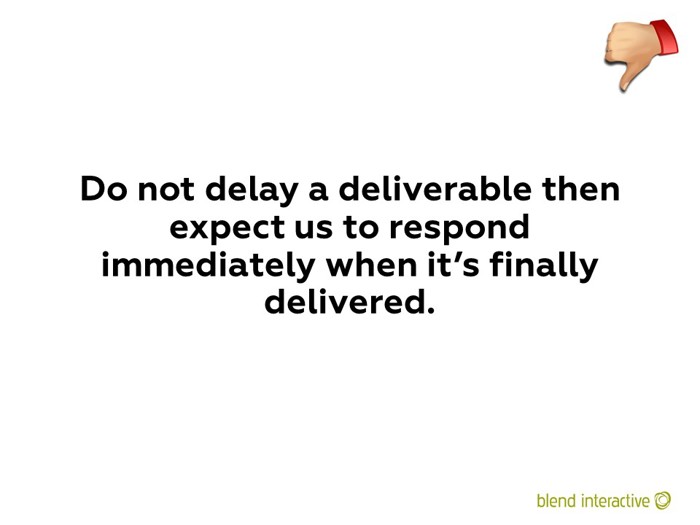
This would happen all the time. The client would be late on something to the point where we just had to move on to other clients because we couldn’t sit and wait. Then the client would provide the thing and expect us to drop everything right that minute and get back on their project.
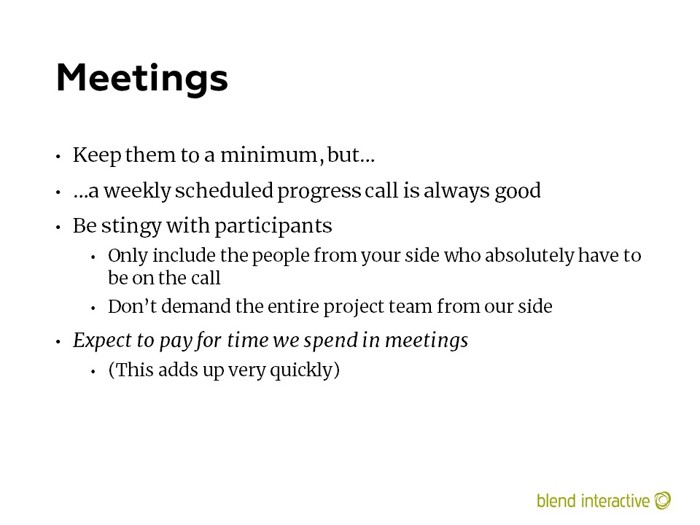
Meeting costs can add up shockingly fast. If integrator team has five people who bill at $150/hour, and you demand that the entire team get on the phone, that makes the meeting cost $750/hour before your sunk labor costs are considered.
You can use your left/right arrow keys to navigate

